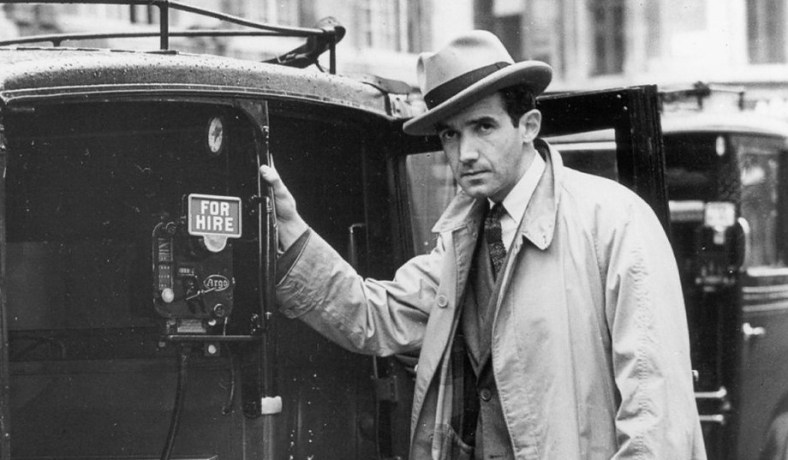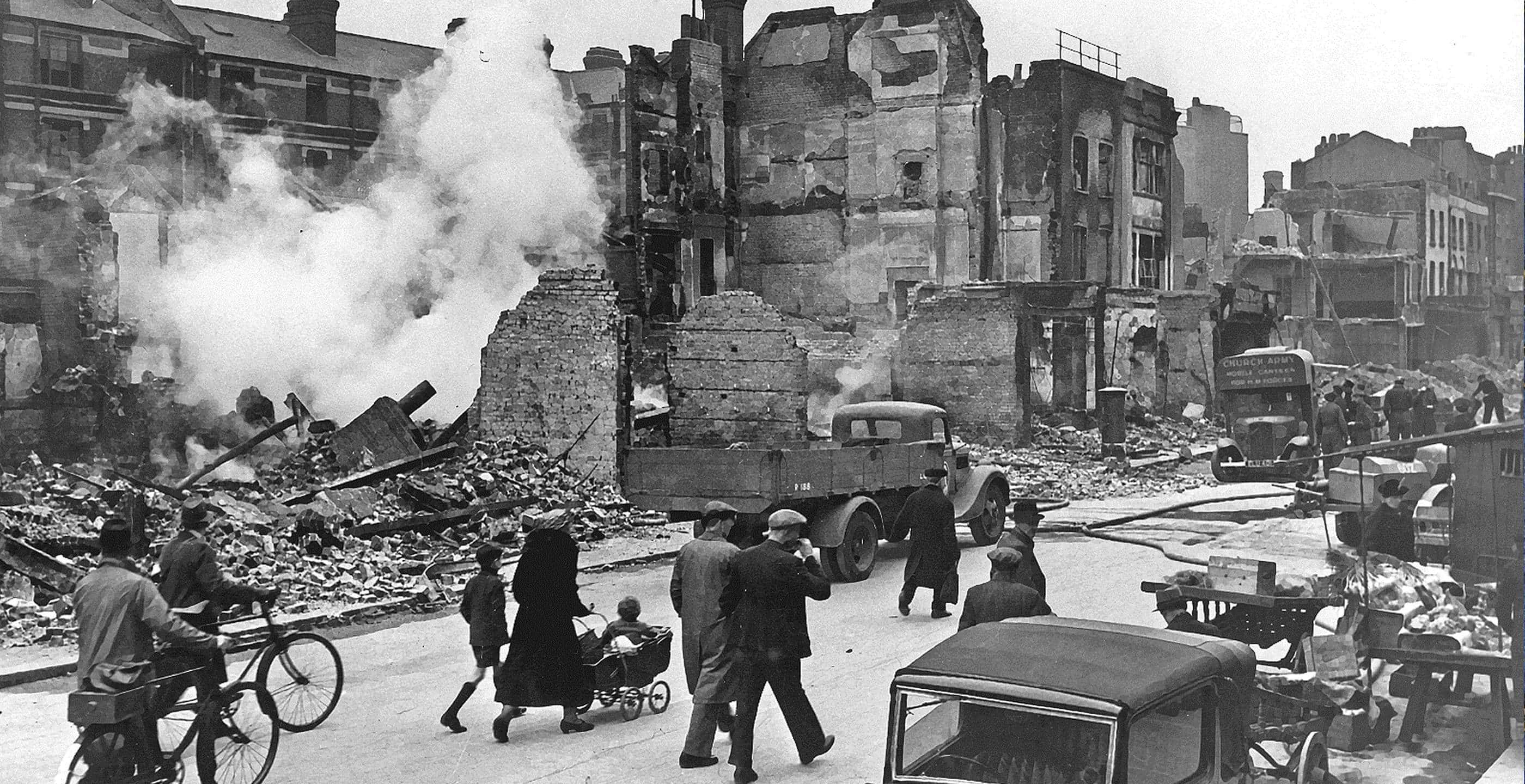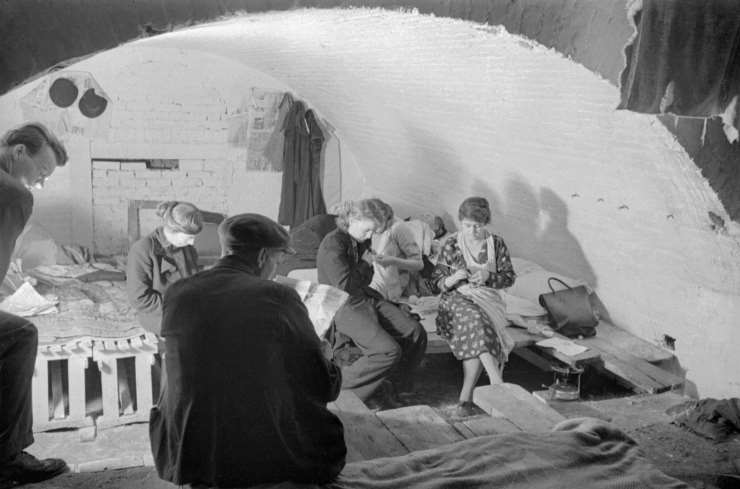Edward R. Murrow’s radio broadcasts from London, aired live while Nazi bombs fell around him, are classics of journalism – and literature.
-
November 2020
Volume65Issue7
Editor's Note: Bob Edwards is a Peabody Award-winning journalist formerly with NPR and Sirius/XM Radio. He is author of Edward R. Murrow and the Birth of Broadcast Journalism, among other books.

By September of 1940, Nazi Germany had conquered most of Europe and was now focused on a planned invasion of Britain. Before it could launch Operation Sea Lion, Germany would need to control the English Channel—and to do that, it would have to have superior air power.
At first, German bombers targeted British airfields and radar sites, but in September, Hitler changed his strategy. The bombers attacked the cities in hopes of stirring fear and panic. Hitler hoped that the daily bombing runs would force the British people to beg their leaders to capitulate.
See also: “The Holy Grail of Broadcast: Murrow’s microphone comes to the
National Press Club,” in this issue by Gil Klein
American radio listeners heard daily reports on the bombing from Edward R. Murrow, who was broadcasting from a studio in the subbasement of Broadcasting House, a BBC facility in London. Murrow’s reports included accounts of death and destruction, the proclamations from Parliament and the observations of ordinary Londoners – a policeman on the corner or a young woman working in a shop. Reading carefully crafted scripts was quality reporting, but it would no longer do for Murrow. He was a radio man and his reports would be more vivid if his listeners could hear what was going on.
For a special program called “London After Dark,” Murrow left the studio and went to Trafalgar Square. Standing at St. Martin in the Fields church, he put his microphone on the ground to record the sounds of people calmly walking to bomb shelters, “like ghosts with steel shoes.” He wanted to show there was no panic in London.

Three successive CBS offices were destroyed by German bombs. Broadcasting House was bombed several times during the war, including at least one time while Murrow was broadcasting. One bomb didn’t explode right away. Experts were working on it when it ultimately exploded, killing seven people and destroying the BBC’s program library.
The blitz gave Murrow the signature phrases that he used to open and close his broadcasts. He began by saying “This is London.” He ended his reports with “Goodnight and good luck.”
That was a phrase Londoners used to end their conversations when they were not certain they’d be able to see each other the next day.
Murrow wanted to string wires from his studio to the roof of Broadcasting House and describe a German air raid in progress. The British feared the Luftwaffe would pick up his report and use it as a measure of their success or as a guide to desired targets. Another possibility was that it might pinpoint Broadcasting House as a target.
Ultimately the government determined that Murrow’s reports of a brave Britain standing alone against the Nazis despite the Blitz was just what London wanted Americans to hear and might galvanize some support from Washington. He was given some rules and permission to do a trial run from the roof of a building several blocks away.
All of Murrow’s wartime reports were live. Recordings were forbidden by CBS. Murrow’s first live rooftop broadcast was made on September 21, 1940. The bombing was heavy that night but, by good luck or bad, it stopped just a minute before the broadcast began. Still, listeners could hear the antiaircraft guns and the whistles of either police officers or air-raid wardens. They were not referees’ whistles, but the reedy, chord-like shriek of a European police whistle.

Murrow doesn’t sound like he’s reading, working instead from ad-lib description and some notes he’d prepared on what he’d seen in the neighborhood earlier in the day. He is generous with metaphors and rich with description: “that faint-red, angry snap of antiaircraft bursts against the steel-blue sky...the sound of guns off in the distance very faintly, like someone kicking a tub...four searchlights reach up and disappear in the light of a three-quarter moon.”
It was journalism, but it was also literature. Murrow was a master of the word picture. A listener could almost feel he was on the rooftop with Murrow:
"The lights are swinging over in this general direction now. You’ll hear two explosions. There they are. That was the explosion overhead, not the guns themselves. I should think in a few minutes there may be a bit of shrapnel around here. Coming in--moving a little closer all the while. The plane’s still very high."
Murrow brought World War II into the living rooms of American homes. Rarely had people heard the sounds of actual war unless they had fought in one themselves. To hear the shooting along with Murrow’s outstanding reporting was something new and exciting. It established radio’s place as a legitimate source of journalism.
The Overseas Press Club honored Murrow’s reporting of the Blitz, but it deserved so much more. It remains some of the finest journalism and radio ever done. Murrow earned numerous awards for his later wartime reporting; some of them were make-goods for not recognizing his superior reporting of 1940. The journalistic establishment was still dominated by newspapermen slow to acknowledge radio’s place in their field.
The broader public embraced their new source of journalism. When Murrow visited New York late in 1941, he learned he’d become a celebrity. CBS chairman William Paley gave him a testimonial dinner at the Waldorf-Astoria where 1,100 people rose in a standing ovation after hearing poet Archibald MacLeish pay him tribute:
"You laid the dead of London at our doors and we knew that the dead were our dead. Without more emotion than needed be ...you have destroyed the superstition that what is done beyond three thousand miles of water is not really done at all. There were some people in this country who did not want the people of America to hear the things you had to say."
It was not a night for isolationists. Five days later, the Japanese attacked Pearl Harbor and Murrow had a private meeting that night with President Franklin D. Roosevelt at the White House.

